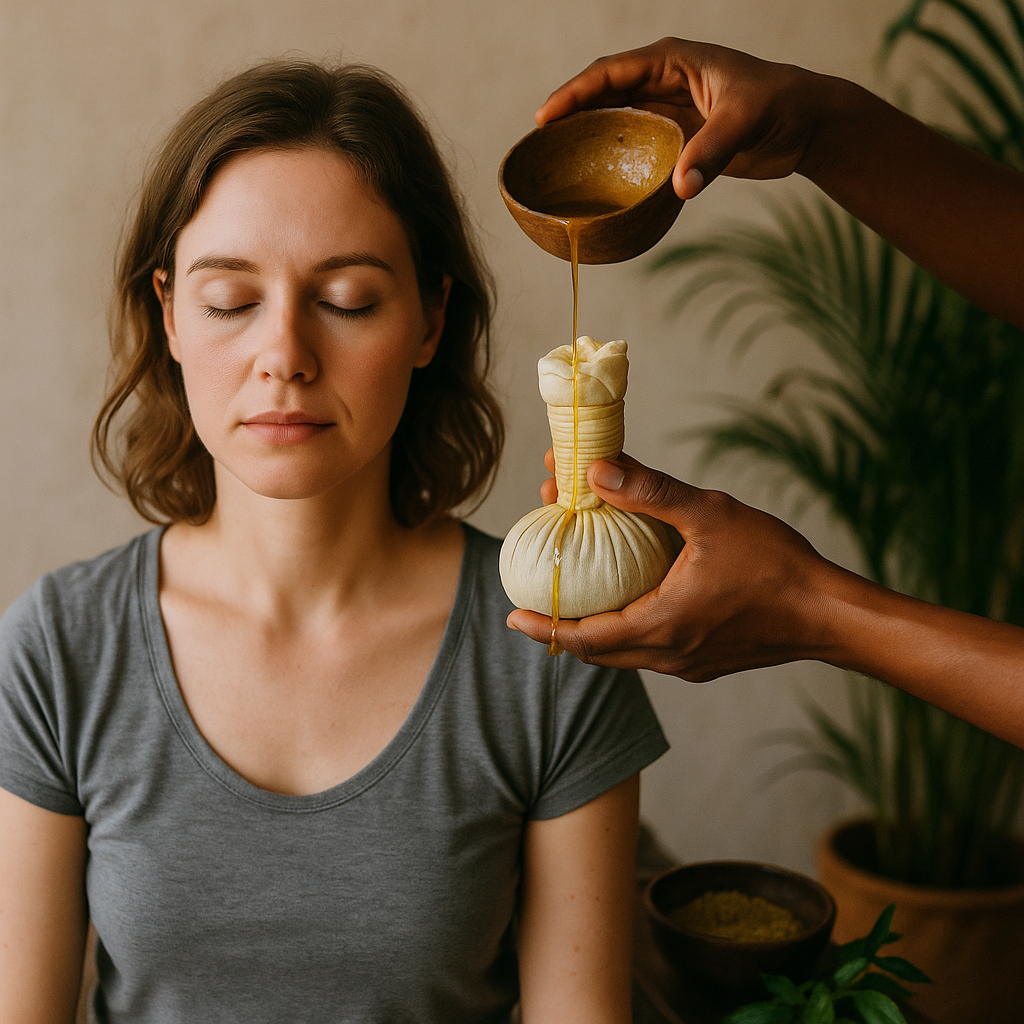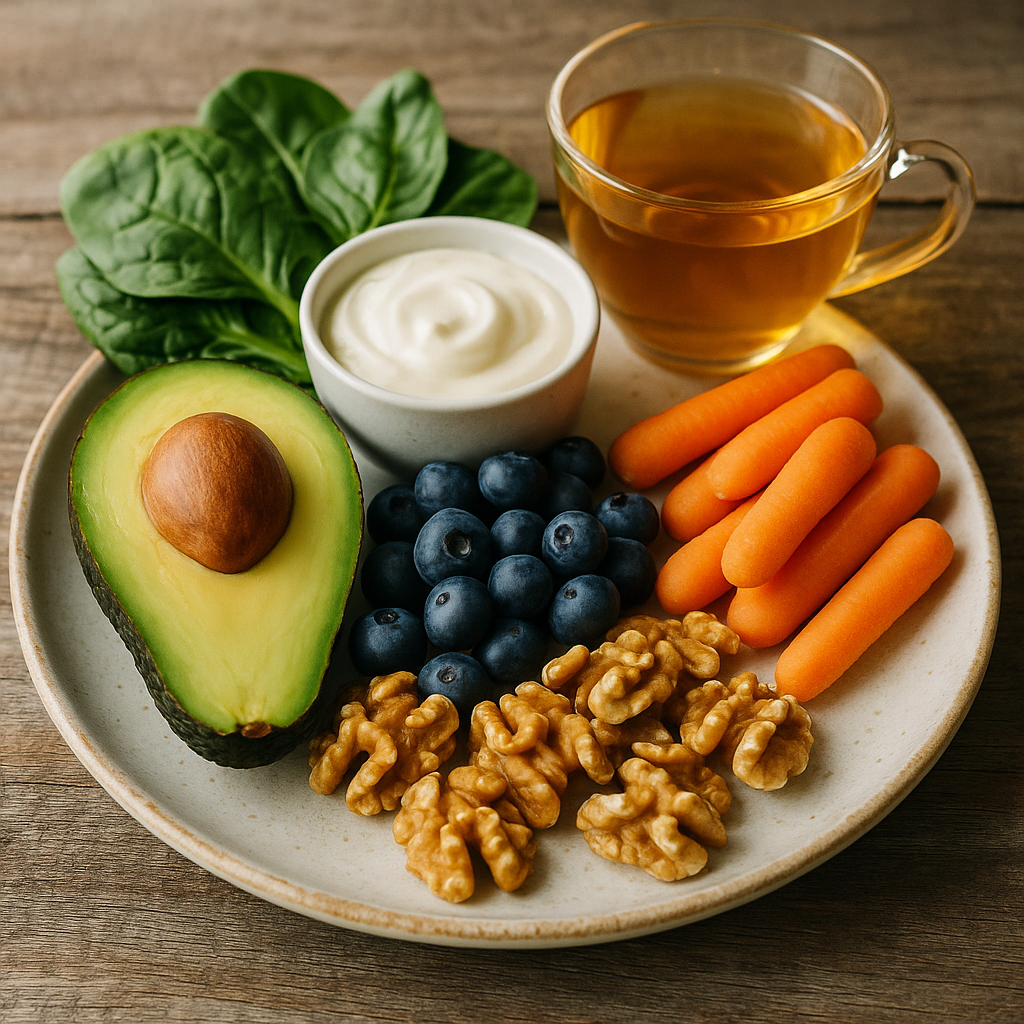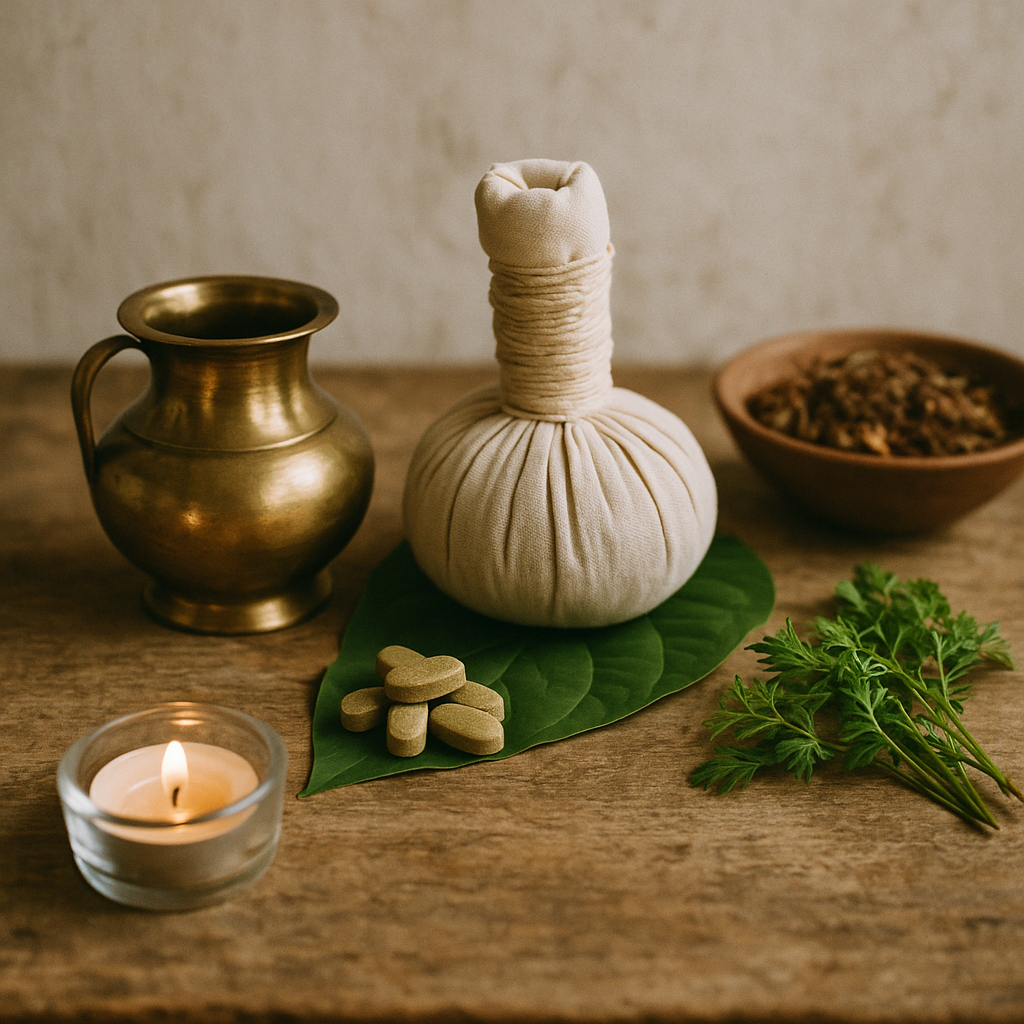Ask Ayurvedic doctor a question and get a consultation online on the problem of your concern in a free or paid mode. More than 2,000 experienced doctors work and wait for your questions on our site and help users to solve their health problems every day.
How to Reduce Anxiety Naturally with Ayurvedic and Home-Based Approaches

Feeling overwhelmed? Struggling with racing thoughts or a constant sense of unease? You're not alone—and you're definitely not powerless. In today's fast-paced world, learning how to reduce anxiety naturally has become not just a preference, but a necessity. Whether you’re navigating mild stress or deeper challenges, there are grounded, effective ways to regain your calm—without relying only on medication.
From ancient ayurvedic treatment for anxiety to practical anxiety treatment at home, this guide walks you through holistic and natural methods that actually work. We'll dive into time-tested ayurvedic herbs for stress and anxiety, simple lifestyle changes, and foods that reduce anxiety fast—because healing doesn't always come in a pill. It can come from your plate, your breath, or even your daily routine.
So if you're wondering how to overcome anxiety in a natural, sustainable way, you're in the right place.
What Is Anxiety and How It Manifests in the Body
Anxiety is more than just "worrying too much." It's a complex response that affects both mind and body—and it often shows up even when there's no obvious cause.
Common Causes and Symptoms of Anxiety
Anxiety can be triggered by stress, trauma, hormonal imbalances, or even poor lifestyle habits. It may show up as:
-
Racing heartbeat
-
Tightness in the chest
-
Restlessness or insomnia
-
Difficulty concentrating
-
Chronic fatigue
-
Irritability or mood swings
For some, it creeps in slowly. For others, it hits like a freight train. And the thing is—it doesn’t always make logical sense. That’s what makes anxiety so frustrating.
How Anxiety Is Viewed in Ayurveda
In Ayurveda for anxiety, mental imbalance is seen as a disturbance in the doshas—especially Vata, which governs movement and nervous system activity. When Vata is out of balance, the mind becomes scattered, and the body goes into overdrive.
Unlike Western medicine, anxiety in Ayurveda isn’t treated with a “one-size-fits-all” pill. Instead, it looks at your unique constitution (Prakriti), your imbalances (Vikriti), and aims to restore harmony through lifestyle, diet, and herbs.

Don't wait or self medicate. Start chat with Doctor NOW
Is Anxiety Curable Naturally? What Ayurveda Says
Here's the honest answer: Is anxiety curable? Maybe not entirely in every case, but it can be managed, often dramatically, with the right tools.
Ayurveda doesn’t treat anxiety as a “disease” but as a sign of imbalance. With consistent anxiety treatment in Ayurveda, many people have not just reduced their symptoms—but discovered deeper calm, better sleep, and more joy in daily life. The focus is on long-term healing, not just symptom suppression.
While severe cases may still require professional help (and that’s okay!), Ayurveda offers a powerful toolkit for those who want to explore natural ways of healing.
How to Reduce Anxiety Naturally at Home
You don’t need a guru or a therapist on speed dial to start feeling better. Some of the most effective anxiety treatment at home begins with simple daily practices.
Lifestyle Tips and Daily Self-Care
-
Routine is key: Wake up, eat, and sleep at the same time every day.
-
Oil massage (Abhyanga): Warm sesame oil calms the nervous system and helps ground Vata.
-
Disconnect from screens: Reduce exposure to news, social media, and notifications—especially before bed.
-
Stay warm: Both physically and emotionally. Vata thrives on warmth, comfort, and grounding.
Just these small shifts? They can be game-changers.
Breathing Practices and Gentle Movement
Breath is your built-in anchor. Practices like alternate nostril breathing (Nadi Shodhana) and box breathing are proven to regulate the nervous system.
Add gentle movement—think yoga, walking, or even slow dancing in your living room. Movement moves emotion.

Foods That Reduce Anxiety Fast
Believe it or not, what’s on your plate can directly affect what’s going on in your head. Nutrients, flavors, and even meal timing can influence mood and stress levels. Some foods act like natural relaxants, helping to lower anxiety almost instantly (well, almost).
Calming Herbs and Nutrients to Include
When we talk about foods that reduce anxiety fast, it’s really about nourishment that stabilizes blood sugar, supports the nervous system, and calms the gut (where a surprising amount of serotonin is made).
Here are some MVPs to keep on hand:
-
Ashwagandha: One of the most powerful ayurvedic herbs for anxiety, it's known to balance cortisol and reduce stress.
-
Brahmi (Bacopa monnieri): This herb supports mental clarity and is a go-to in anxiety ayurvedic treatment.
-
Warm milk with nutmeg or turmeric: Classic bedtime drink in Ayurveda for anxiety.
-
Bananas, oats, and dark chocolate: These offer magnesium, tryptophan, and mood-boosting compounds.
-
Pumpkin seeds and almonds: High in zinc and healthy fats, these help the brain chill out.
Don’t forget hydrating! Dehydration can mimic anxiety symptoms. Herbal teas like chamomile, tulsi (holy basil), and lemon balm can do wonders.
What to Avoid During High Stress
You might love your coffee, but it might not love you back—especially when you're anxious. Caffeine and sugar can spike anxiety levels and mess with your sleep (and sanity).
Avoid or limit:
-
Caffeinated drinks and energy boosters
-
Processed, fried, or stale food
-
Alcohol and smoking (they don’t relax you long-term, they just distract you)
-
Ice-cold or raw foods (these increase Vata dosha, making you more jittery)
And yeah, skipping meals isn’t self-care. It’s self-sabotage when it comes to anxiety.

Ayurvedic Treatment for Anxiety: Holistic Approach
Anxiety treatment in Ayurveda goes beyond herbs. It's a full-body, full-mind reset. The idea is to bring all three doshas—Vata, Pitta, and Kapha—into balance, while especially grounding Vata.
Ayurvedic Herbs and Medicines for Anxiety Relief
There are many ayurvedic medicines for anxiety, but let’s not just toss names around. Here are a few worth mentioning:
-
Ashwagandha: (Yeah, again. It’s that good.)
-
Jatamansi: A lesser-known but incredibly effective ayurvedic herb for stress and anxiety.
-
Tagara: Similar to valerian root, used to promote sleep and calm.
-
Mandukaparni (Gotu Kola): Enhances brain function and reduces anxiety-related fogginess.
These herbs are often found in capsules, powders, or as part of compound formulas. But make sure you talk to a qualified Ayurvedic practitioner—just 'cause it's natural doesn’t mean you should DIY everything.
Ayurvedic Syrups and Oils for Stress
Yup, Ayurveda’s got syrups too—often made with a mix of adaptogenic herbs and sweeteners to ease absorption. Popular ayurvedic syrup for stress and anxiety includes:
-
Saraswatarishta: A fermented tonic often prescribed for anxiety, poor memory, and nervous exhaustion.
-
Ashwagandharishta: Fermented herbal wine with ashwagandha, used in many anxiety ayurvedic treatments.
-
Bala-Ashwagandha oil: Used for external massage, especially on feet and scalp to relax the nervous system.
A lot of people overlook these, but they’re potent. And easy to add to your day.
Strongest Natural Anxiety Remedies That Work
So what’s the strongest natural anxiety medication out there? Well, it depends on the person. But some remedies have stood the test of time, backed by both tradition and (increasingly) science.
Here’s a round-up of nature’s heavy-hitters:
-
Ashwagandha (yes, again – seriously, get some): Lowers cortisol and stabilizes moods like a pro.
-
Magnesium: It’s not just a mineral, it’s a nervous system soother. Found in leafy greens, seeds, and dark chocolate.
-
L-Theanine: An amino acid found in green tea that promotes alpha brain waves (aka chill mode).
-
Valerian root: Used for centuries as a sleep aid and home remedy for anxiety.
-
Aromatherapy: Oils like lavender, sandalwood, and rose can reduce stress through direct limbic system activation (aka they just smell really nice and help you calm down).
Also, don’t underestimate the power of human connection. Loneliness is like fertilizer for anxiety. Connection—even in small doses—can be one of the strongest medicines we have.
Conclusion
Anxiety doesn't have to run your life. From ayurvedic treatment for anxiety to anxiety treatment at home, there’s a world of natural, gentle options that can bring real, lasting relief. The truth is, learning how to reduce anxiety naturally isn’t about fixing yourself—it's about supporting your body and mind in ways that make healing possible.
Whether you’re sipping herbal tea, doing a bit of grounding yoga, or rubbing oil on your feet before bed (try it tonight!), you’re taking steps toward balance.
So try one thing from this guide. Then another. Healing is layered, and it's okay to take it one breath at a time.
🌿 “The natural healing force within each of us is the greatest force in getting well.” – Hippocrates
FAQs
What is the 3 3 3 rule for anxiety?
The 3-3-3 rule is a quick mental trick to ground yourself when anxiety spikes. Here's how it works:
-
Look around and name 3 things you see.
-
Name 3 sounds you hear.
-
Move or touch 3 parts of your body (wiggle toes, shrug shoulders, tap fingers).
It’s simple, but it pulls you out of racing thoughts and into the present.
What is the best help for severe anxiety?
For severe anxiety, natural remedies can help, but you’ll likely need a multi-pronged approach. A combo of therapy (like CBT), ayurvedic medicines for anxiety, lifestyle changes, and sometimes medical intervention works best. Don’t be afraid to reach out for professional help—it’s not a weakness, it’s a strategy.
What are 5 signs you have anxiety?
Five common signs of anxiety include:
-
Constant worrying or dread
-
Trouble sleeping or staying asleep
-
Rapid heartbeat or tight chest
-
Feeling easily overwhelmed or irritable
-
Avoiding things that make you nervous
These can sneak up gradually, so be gentle with yourself while also being aware.
How fast do natural anxiety remedies work?
It varies. Some like breathing techniques, warm baths, or foods that reduce anxiety fast can bring relief in minutes. Others—like ayurvedic herbs for anxiety—might take days or weeks to fully kick in. Consistency is key. This isn’t fast food—it’s more like a slow-cooked stew. Worth the wait.
🙏 Thanks for reading! If you found this helpful, consider sharing it with someone who might need it. You never know whose day (or life) you might change with a simple scroll and send.

